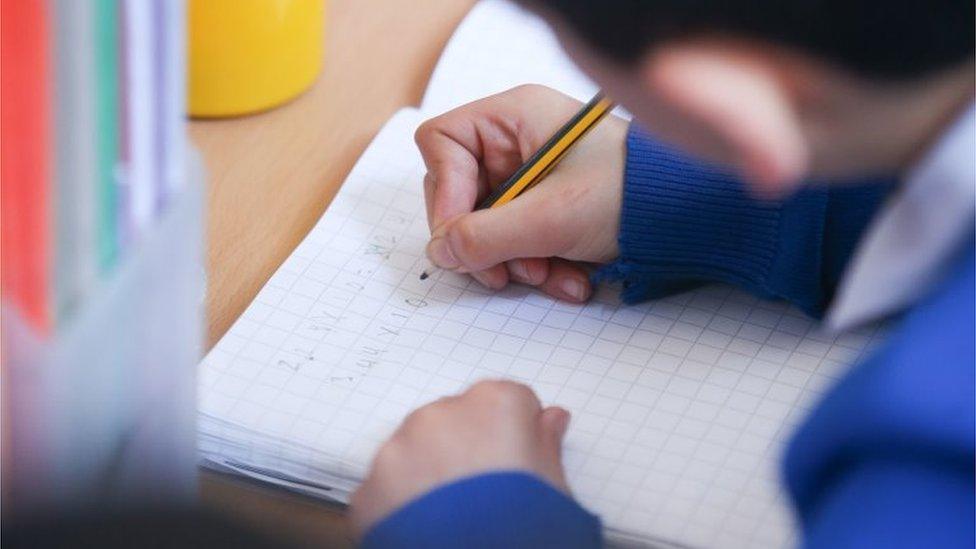Schools Bill scrapped, education secretary says
- Published

The government removed a chunk of its own bill in the summer after criticism in the House of Lords
A bill designed to "raise education standards" in England has been dropped, the education secretary has said.
The Schools Bill included plans for a register of children not in school and measures to help with plans for all schools to join multi-academy trusts.
It has hit hurdles since it was introduced this year.
Gillian Keegan said parts of the government's plan did not need legislation and were being implemented.
A head teachers' union said it hoped a register for children could still be introduced.
Speaking to MPs, she confirmed that the bill "will not progress" to its third reading in the House of Lords.
Ms Keegan said "parliamentary time has definitely been reprioritised" to focus on tackling the rising cost of living, "because of the pandemic aftershocks but also the war in Ukraine".
However, she said ministers "remain committed" to the objectives of the Schools Bill, and would be "prioritising some aspects of the bill as well to see what we can do".
"A lot of the Schools White Paper is being implemented and didn't require legislation in many cases," she said - referring to a policy document that set out the government's vision for education this year, some of which was meant to be achieved through the Schools Bill.
Ms Keegan said a register of children who are not in school was "definitely a priority". Robin Walker, chairman of the education committee of MPs, said he wanted to hear how that would be legislated for instead.
The Schools White Paper, published in March, included plans for a minimum week length and higher English and maths targets.
It also proposed a target for all schools to be part of a group of academies, or in the process of joining one, by 2030, and for a register of children who are not in school.
The government wanted to use the Schools Bill to legislate on issues such as the structure and regulation of academies, school attendance, and school funding.
But the legislation has hit hurdles since it was introduced this year, with peers in the House of Lords calling proposals on academies a "power grab", external that gave the government too much control.
In June, the government gutted its own bill, removing 18 clauses relating to the regulation of academies.
It had been due to come back with new proposals - until now.
The scrapping of the bill is likely to disappoint Conservative MPs who had hoped to use it to overturn a ban on new grammar schools.
'Long grass'
National Association of Head Teachers general secretary Paul Whiteman said it was "inevitable" the government would "eventually have to scrap" the bill.
He was "pleased to see it won't go ahead in its current form".
But it was "a shame that the sensible and necessary elements of the bill that we did support have been thrown into the long grass alongside the others".
"The introduction of a register of children not in school, for example, is something we believe is important to improve safeguarding for children, as is the crackdown on illegal schools," Mr Whiteman said.
"We hope these elements of the bill won't be lost entirely."
Julie McCulloch, of the Association of School and College Leaders, said proposals in the White Paper such as the minimum school-week length now appeared "to be in limbo".
Labour's shadow education secretary, Bridget Phillipson, said the bill had been the government's "priority". The Conservative Party had "no idea how to improve education" but Labour would end tax breaks for private schools to "deliver thousands more teachers, professional careers advice, and mental-health guidance".
Related topics
- Published27 March 2022

- Published28 March 2022

- Published9 May 2022
